About Anal Sphincter Problems
Women of all ages have experienced constipation, diarrhea, and/or gas at one point in time. Generally, those symptoms clear up within a day or two (depending on the severity) and go back to a normal bowel movement routine. However, women with anal sphincter problems continuously live with these symptomatic issues. These problems range from diarrhea, fecal leakage, constipation, foul smelling gas, or a combination of erratic symptoms of the bowel. Drs. Irwin, Blaue, Fay, Reid, Schumann, M.D., F.A.C.O.G., and Hermann treat these conditions regularly and want to offer their support at the Caring Center for Women in New Braunfels, TX.
If you have anal sphincter problems and have not received treatment, your quality of life is suffering. You may be staying at home because you are afraid of having an accident or find it all too embarrassing to have an accident in public. We understand and would like to offer you a consultation at one of our offices where we can talk privately about your condition. Our wonderful team of doctors will help you learn ways to control or retrain your bowel, try different therapies, and advise on medication before going to a surgical intervention. However, if surgery is needed, we will guide you through the process, so you can take back control of your body. There are many variations of anal sphincter problems, and we would like to talk to you about any symptom you may be experiencing, such as:
- Fecal incontinence (unable to hold or stop a bowel movement)
- Loss of sensation in the nerves
- Irritable bowel syndrome
- Constipation that lasts for long periods of time or happens often
- Pelvic organ prolapse
- Loose or hard stools
- Unusual color or consistency to the stool
- Persistent gas leakage with a strong odor
- A development of hemorrhoids, a hernia, or fistula in or near the bowel to the vaginal canal
- A medical condition that aids in the problematic symptom
- Changing the diet or liquid intake does not help
Testing Problematic bowels
In the search for what may be causing your symptoms, your doctor may request the following tests in your best interest:
- An anorectal manometry to test for nerve injury and defects of the muscles of the sphincter
- A colonoscopy to look inside the bowel and rectum
- A magnetic resonance imaging (MRI) to see the muscles (still and in motion) near your bowels
- An X-ray or MRI study of how you defecate (defecography)
Additional testing (after the first results have not provided enough information) may include:
- A barium enema with an X-ray to check for a blockage in the intestines
- A computed tomography (CT) scan of the intestines
- An endoanal ultrasound of the anal sphincter muscles
- A transit time/Sitz marker study and imagery of the bowel
Reviews
Treatment Options
Lifestyle changes
- Eating a diet that is best suited for your problematic bowel (such as a high fiber diet for constipation)
- Avoiding caffeine to stop the stimulation it provides the bowels
- Documenting what you eat, when you eat, and when you have bowel movements (or when you don't) can give you insight on what may be triggering your bowels
- Having a regular eating schedule to make bowel movements more predictable and plan to be near a restroom afterward to prevent accidents
- Wearing absorbent pads or adult diapers to contain odor, leakage, and bathroom accidents should they occur
- Exercising and maintaining a healthy weight
Therapies
- A pessary for prolapse
- An Eclipse vaginal insert
- Adhesive patches
- Anal plugs
- Prescribed tricyclic anti-depressants
- Nerve stimulation therapies (PTNS and SNS)
- Kegel and physical therapy exercises
- Biofeedback sessions
- Talk therapy or counseling
- Gentle stimulation of the nerves that control the bladder and bowel (Axonics Therapy)
Medications for leakage
- Over-the-counter loperamide (Imodium) for diarrhea
- Prescription diphenoxylate and atropine (Lomotil) for diarrhea
- Fiber supplementation for constipation
Medications for constipation
- Bulk-forming laxatives (Benefiber, Metamucil, and Citrucel)
- Stimulant laxatives (senna, or bisacodyl)
- Osmotic laxatives (MiraLax, or lactulose)
- Saline laxatives (milk of magnesia)
- Lubricants (mineral oil) or stool softeners (docusate sodium): to help the bowel pass your stool in a gentle manner
Pessary inserts
Surgeries
- An overlapping anal sphincteroplasty
- Injectable anal bulking agents
- A magnetic anal sphincter surgery
- POP surgery
Other Considerations
There are no set causes as to why women experience bowel problems, and many experience a combination of symptoms that make it hard to tell what caused this to happen. The functionality of your rectum and bowel can be damaged by carrying a pregnancy to term, or enduring injuries in the rectum or vagina during a vaginal delivery. There are many other health conditions (like neurological disorders or diabetes) that weaken the muscles of the sphincter or the effectiveness of the nerves in the area. Also, keep in mind that advanced age is not necessarily a reason for this to happen to a woman. Let's talk it out in a consultation.

Let's Talk about it
The good news about this situation is that you are reaching out for help. Keeping this problem to yourself may feel isolating and uncomfortable. Our staff is compassionate and will listen earnestly to you as you explain your symptoms. We will personalize your treatment to your needs and lifestyle. Give us a call to schedule your appointment at our New Braunfels, TX office. We would like to help you get back on track.




